After the birth of her first baby and becoming tired of government bureaucracy, Native Nosi founder, Mokgadi Mabela, decided to continue her family’s beekeeping business.
But she twisted things around by formalising the business. Instead of just selling unbranded honey and doing every transaction by cash, she used modern methods to attract investors and expand her business.
How Arthur Ginsberg Launched Chappies, South Africa’s Favorite Bubblegum Brand
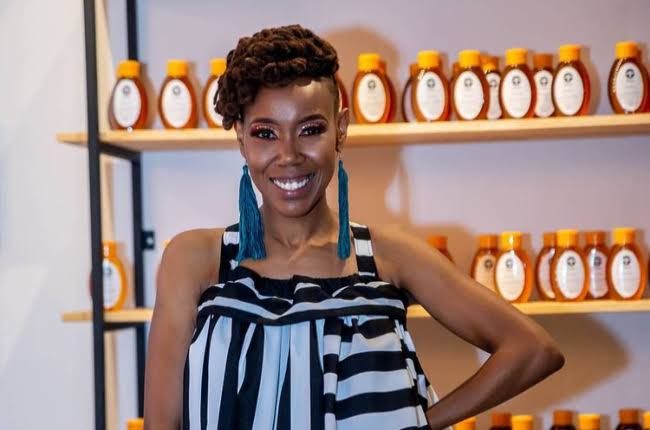
Nowhere in the entrepreneurial rule book says starting a business is easy but for Mokgadi, the whole process was a lot tougher.
When she first started out, she didn’t have access to the same resources that many other entrepreneurs had, but despite all the obstacles, she remained undeterred.
According to Mokgadi, the beekeeping business has been running in her family for the longest time. Her grandfather(Erence Mabela) launched the business with his savings and her father(Peter Mabela), took over from him, but expected the business to end with him as he doesn’t have a son.
How Motsepe Turned A Loan of $8.2 Million To A $3.1 Billion Empire
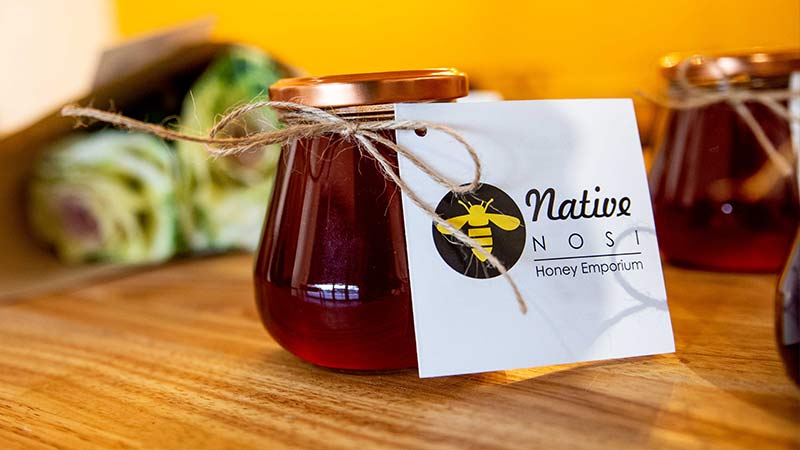
In Pedi culture, boys traditionally take over the family business.
Mokgadi wasn’t keen on continuing the family business, she thought it wouldn’t be able to sustain the kind of life she wanted to live.
After completing her matric, she enrolled for a BA in Political Science & International studies at the University of Pretoria. She aced the qualification and found employment at the Department of Human Settlements in 2008.
During that time, she realized people in her workplace weren’t consuming what she thought was honey or atleast honey she grew up consuming. She then started selling her father’s honey on the side but as time went on, her father was struggling to meet the demand, and her clientele was growing daily.
The Amazing Story of How Amelia Balls Grew Mrs H.S. Balls Chutney To A Global Brand
In May 2015, she was looking for a way out of her government job, after having her first baby, Khumo.
She could have followed the ways her grandfather and father ran the business by selling unbranded honey as a one-woman show, but she saw numerous advantages in starting a company.

She launched Native Nosi in late 2015, this move gave the family business a more professional look and differentiated it from the crowd of sameness.
She named the business Native Nosi because ‘Nosi’ is the Basotho word for honey bee. Native Nosi represents natural, pure and unadulterated honey products produced locally.
How Anat Apter Maxed Out Her R10 000 Credit Card & Launched ANAT In 1992
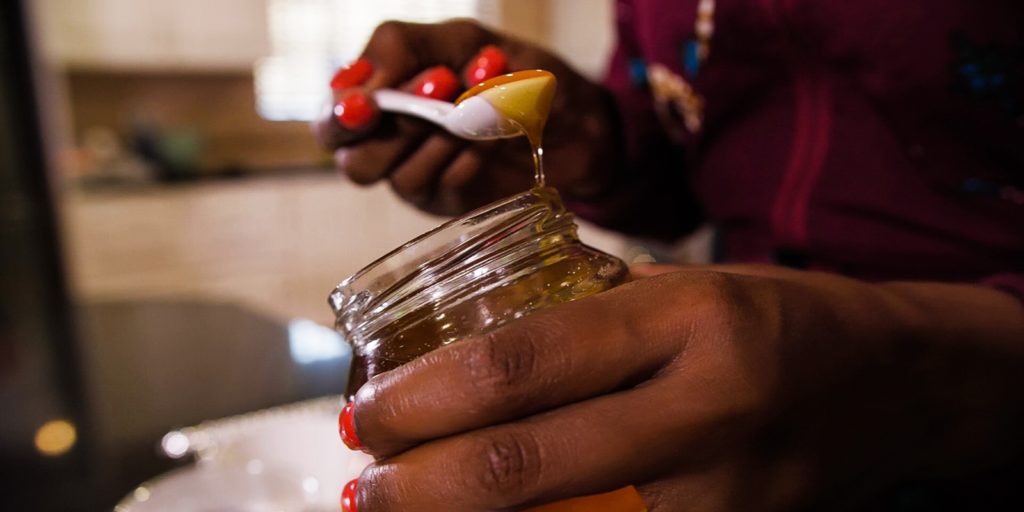
She realized that more than half of the honey in South Africa was imported and that presented 2 problems:
- Imported honey is diluted with syrup which lowers its quality.
- All imported honey is irradiated, which destroys pathogens, robbing the honey of its beneficial properties.
She used the money she made selling honey as a side-hustle to finance her first hives and gradually bought more as more money became available.
Her start-up costs were very low. Her father helped her get started with her own swarms, by agreeing to put her hives with his and overseeing and harvesting them along with his.
How Portia Mngomezulu Turned Portia M Into A Multimillion Skincare Brand
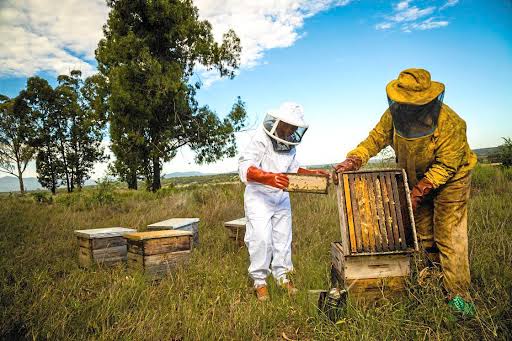
It was difficult for her to get a loan from the bank to finance her new venture, so she mostly did everything by her own.
Her journey was slow at first, customers were mostly friends and neighbour’s but with time, Mokgadi was selling more honey than her father could provide.
In those early stages, she mostly took orders by phone, tracked them on a spreadsheet and delivered them using a courier service. She bootstrapped the whole thing, growing slowly through word-of-mouth marketing.
With the help of a friend, Mokgadi was able to build an e-commerce site for the business, this allowed her to promote her products online.
How Siyanda Dlamini Managed To Build A R350 Million Hotel In Menlyn Pretoria

She raised R500K through a crowdfunding campaign hosted by The People’s Fund. She used the funds to buy 360 additional hives, bringing her total number of hives to 460.
In 2017, she came 2nd place at an entrepreneur competition hosted by Standard Bank, The Hook up Dinner and SAB. She won R27 000, and used it to buy some equipments for the business.
According to Mokgadi, although she enjoys waking up without feeling enslaved to the vicious cycle of a 9 – 5, its still a challenge being a business owner, as you’re never sure of your next income, and constantly need to think of ways to boost your sales.
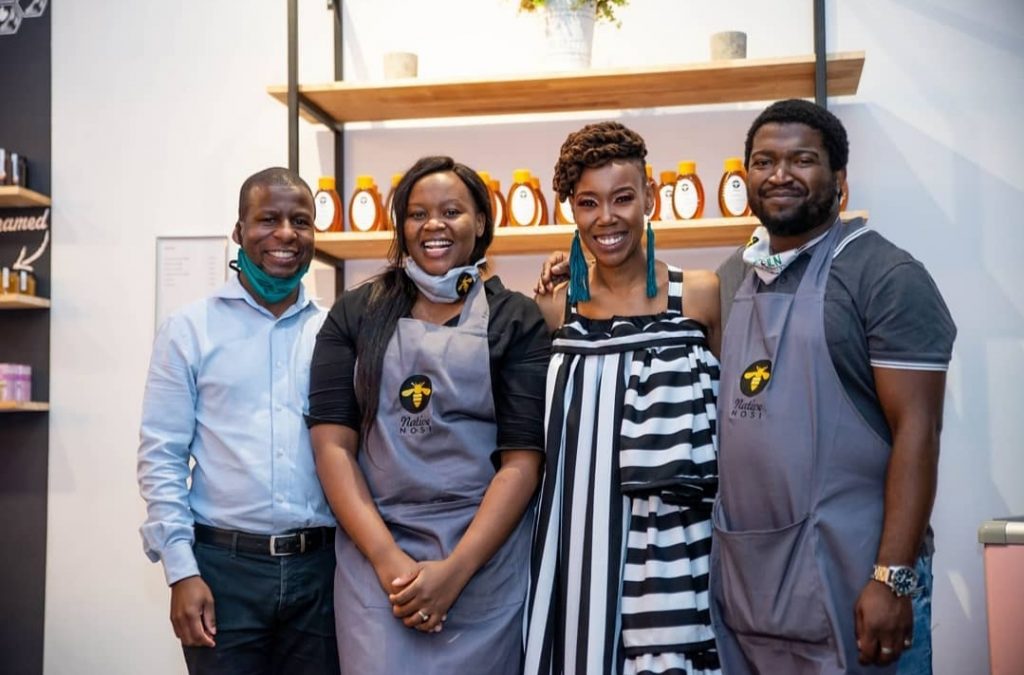
Since the business doesn’t have enough volumes to supply its growing demand, she buys honey and honeycombs from 7 other small-scale farmers in Limpopo.
How Amina Abrahams Went From Being Retrenched To A Multimillionaire
The relationship with the Limpopo based farmers started in late 2016, when she ran into a shortage of supply due to drought.
During this process, she realized she couldn’t just take any honey from anyone without doing any hive inspections, as low-quality honey could damage Native Nosi’s brand.
Her team consists of her father, her sister(Maite Mabela) and her husband, Moraka Mailula.
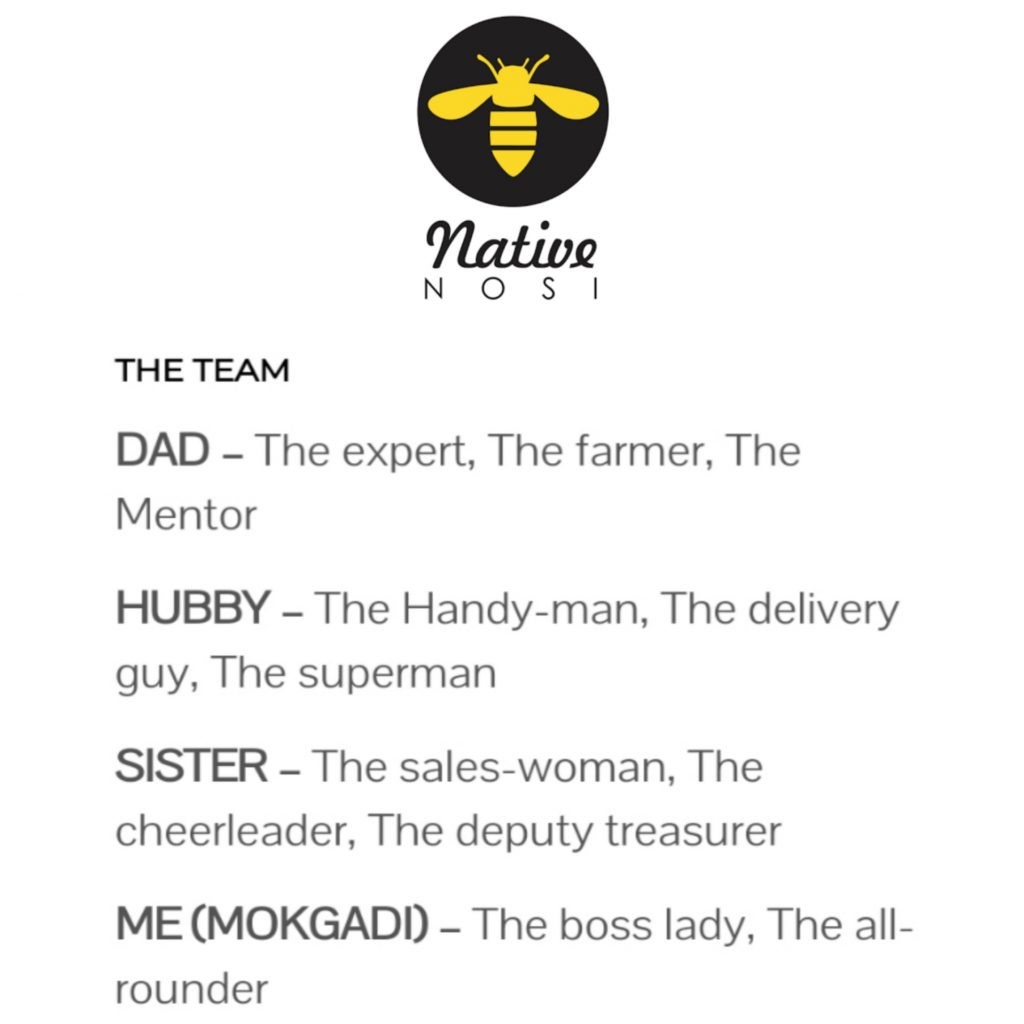
She started out selling about 50kg of honey per month, which has since increased to between 300kg to 500kg per month.
How George Sombonos Turned Chicken Licken Into One Of The Largest Fast-food Outlet In The World
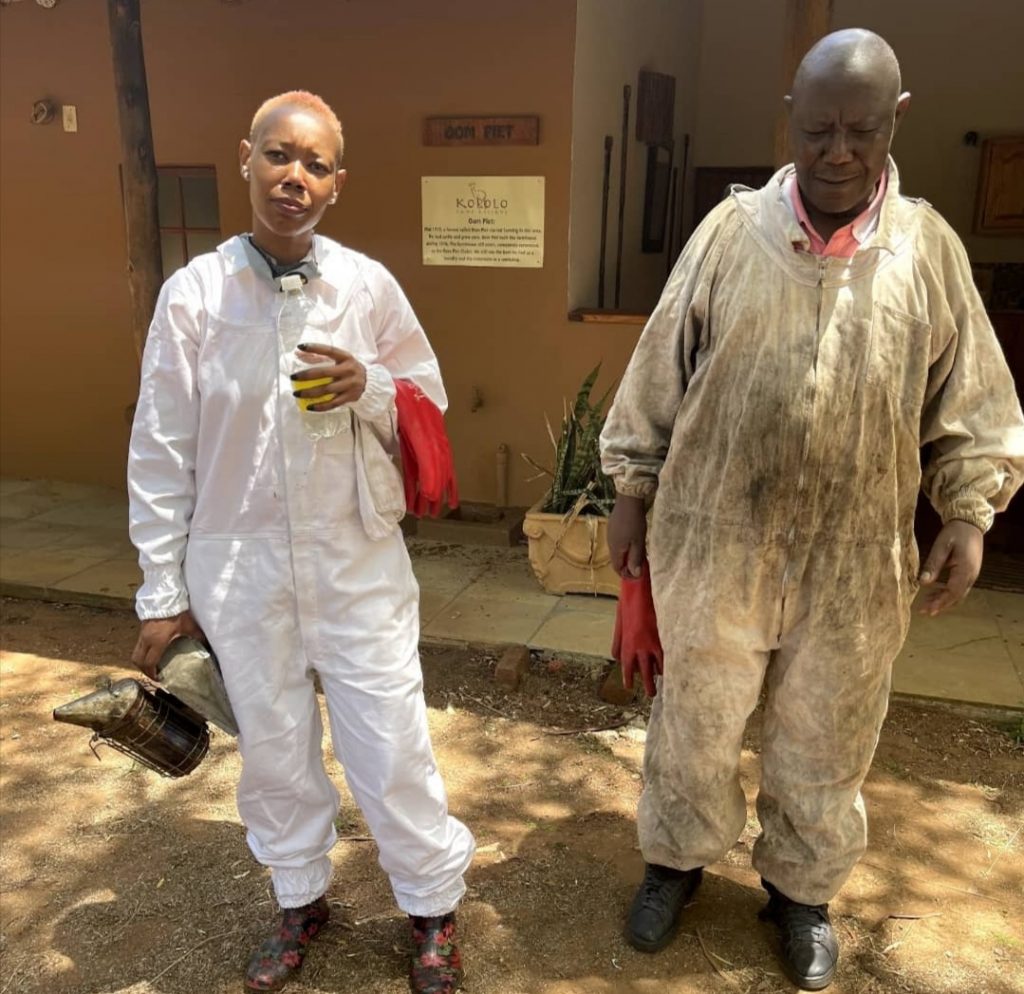
In 2019, she won the Woolworths FoodXX agriculture award at the woman in Foods award by FoodXX. She was rewarded for her contribution as a female farmer in the food industry.
In July 2020, amidst a pandemic and a shaky economy, she realised that it was no longer conducive for her to operate only as an online shop as the demand was too high, so she launched an emporium in Pretoria – a place where consumers could see, taste and even feel the product she crafted carefully.
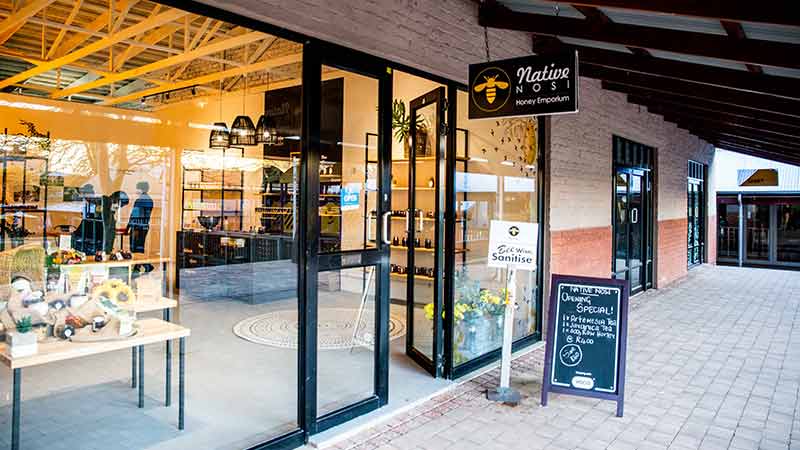
According to Mokgadi, her vision isn’t to sell more honey than anyone else but rather, to showcase what she feels like she owes the the world – which is to give other entrepreneurs like herself, a platform to reach more consumers.
She achieved this by placing several products(tea, butter, chocolate, powder etc) created by other female entrepreneurs next to the shelves of Native Nosi.
Her product is honey but her purpose is something bigger, which is to provide opportunities and promote black excellence.
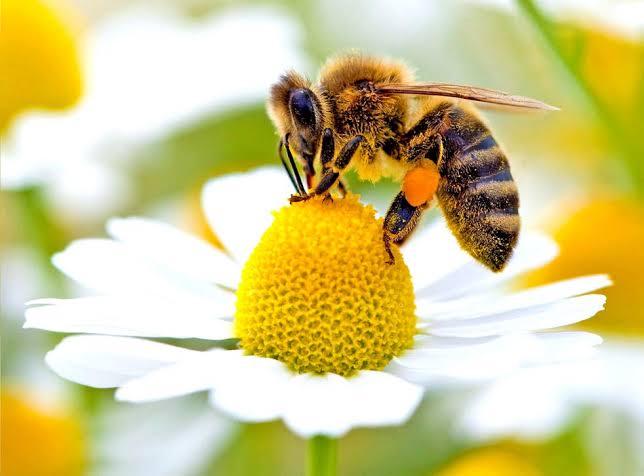
Apart from selling honey and its products, she also offers pollination services to fruit and vegetable farmers, but she doesn’t overdo it, because pollination has a negative impact on honey production.
WATCH|| Dj Sbu’s Top 10 Rules For Success
Take the leap….
Mokgadi says aspiring entrepreneurs should not wait to be spoon-fed, they should take a leap and put in the effort into learning as much as possible about their chosen field of business.
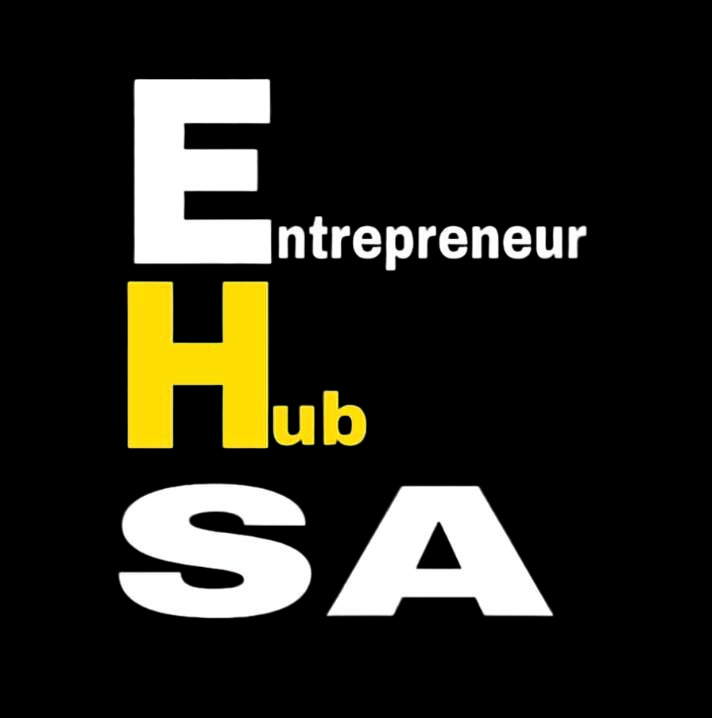
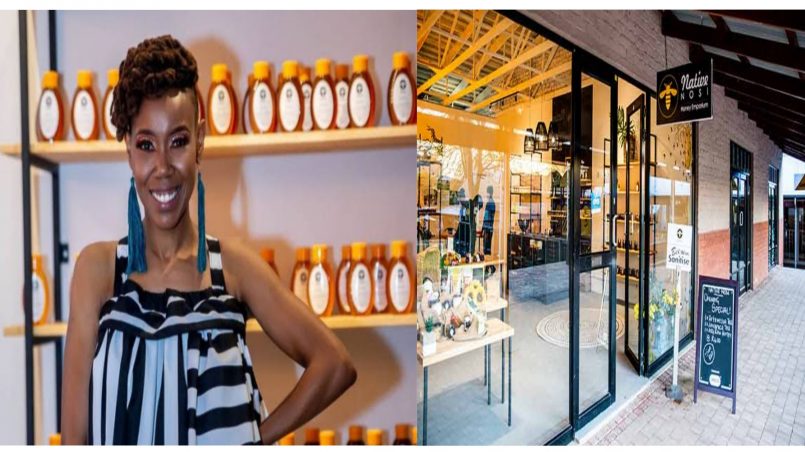

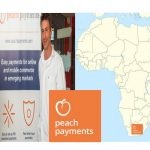
1 Comment